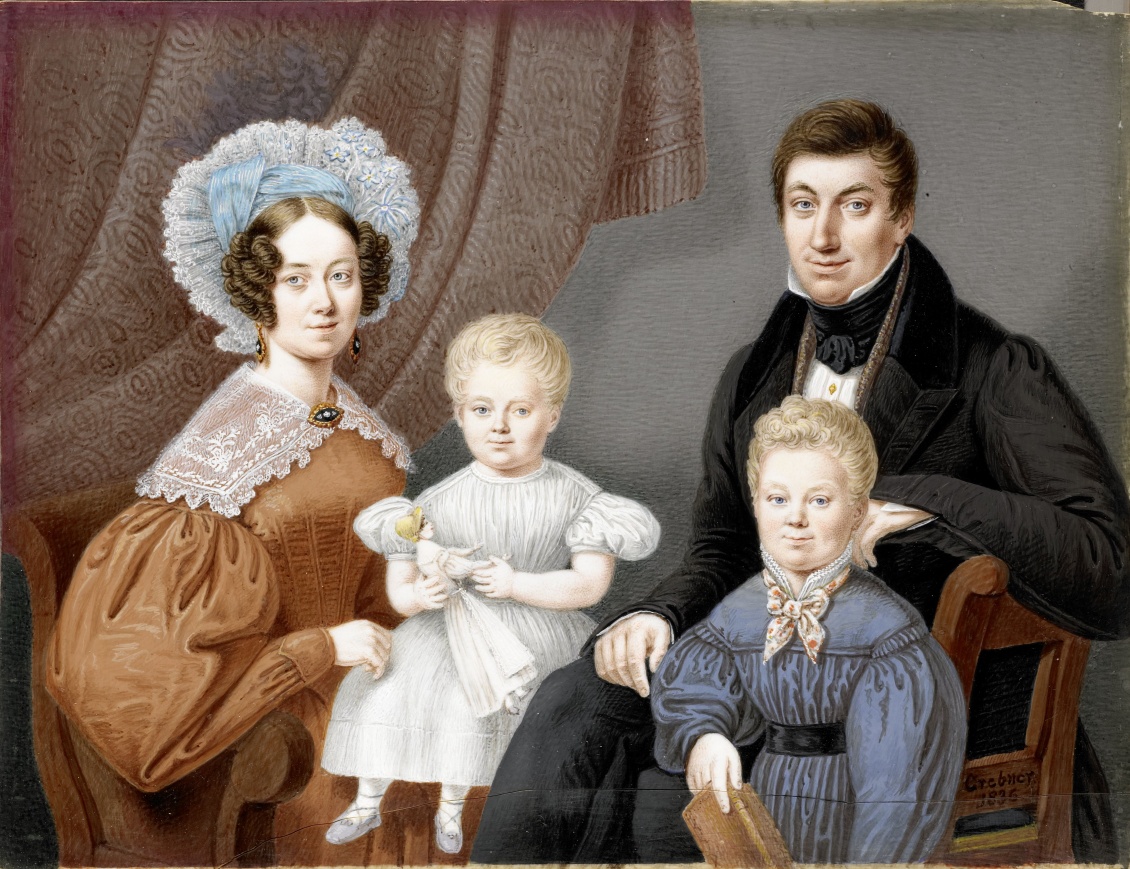Rethinking Development
De familie Diederichs, Willem Grebner, 1836. Courtesy Rijksmuseum, Amsterdam.
by Rick Clugston
Rick Clugston, Ph.D. is presenting on “How Can We and the U.N. Help Each Other” and “The Importance of the World’s Religions” in the Section on Catastrophic Climate Change at our “Seizing an Alternative” conference. He offers these notes in preparation for the conference.
Development is not primarily about short term dominance and gain. Rather, it is about building those conditions necessary for all in a flourishing Earth community. To paraphrase the Earth Charter, after basic needs are met, development should be about being more, not having more. Real transformative change will require the reorientation of development goals to support psychological and spiritual growth and sustainable living. It will encourage those with more than they need to give to those who lack the basic necessities for life.
In shaping the sustainable development goals, we must make sure that we are not just reinforcing the engine of unsustainable growth under the guise of sustainable development. Providing more services to an increasing population is a fundamental challenge. It can only be met if those with enough voluntarily decide to give what they really don’t need to support the many who have too little.
What is the good life?
Development, to be truly sustainable, must also provide the conditions necessary for everyone’s spiritual growth. All compassionately spiritual traditions affirm that there is an ultimate goodness that we are here to help make fully present in the world, and that we can develop an identity more consciously informed by a deeper source, a higher power, a greater self.
The major task in life is to awaken to this deeper reality and live in accordance with it. This requires a major effort to bring our awareness out of preoccupation with petty and self-centered concerns into a compassionate connection with all life, living in ways that all can live. Each compassionate spiritual tradition has developed a set of transformative practices to enable one to focus attention, desire and action to move beyond one’s small self into an identity more informed by this deeper source.
Successful passage through the stages of human development requires the continual transformation of more limited forms of being into higher levels of cognitive and moral reasoning and generative relatedness to others. Our development as persons is a natural process of crisis and transformation, in which we must “die” to an old, no longer viable identity and be “reborn” into a new, broader and deeper identity.
Finding our vocation
The good life is the outcome of the successful negotiation of these developmental crises, in which we move into an ever deeper and more comprehensive and interconnected identity. The task of parents, communities, policies and institutions is to provide those conditions which make these successful transitions more likely.
The confluence of these frameworks for understanding our psychological/spiritual journey and path to the good life points to developing our individuated, actualized “self” — a deeply ecological self, connected to all that is in its process of unfolding, and awake to the radiant presence that energizes the world and is the source of all being.
Each of us has emerged from material nothingness and shall return into this nothingness at death. In between we grow and age, passing through stages of human development. This transformative journey is fundamentally about finding our vocation — those activities and relationships where our deepest passions meet the real needs of the world.
This then is the picture: there are some people — the few who possess much — who do not really succeed in “being” because…they are hindered by the cult of “having;” and there are others — the many who have little or nothing — who do not succeed in realizing their basic human vocation because they are deprived of essential goods.
Rick Clugston, Ph.D. directs the Spirituality and Sustainability Project of Forum 21, based in New York City, and is directing an interfaith outreach initiative on worship and sustainability for the Anskar Foundation for Historic Preservation in Minneapolis, Minnesota. He is also the Co-Director of the Association of University Leaders for a Sustainable Future (ULSF).
